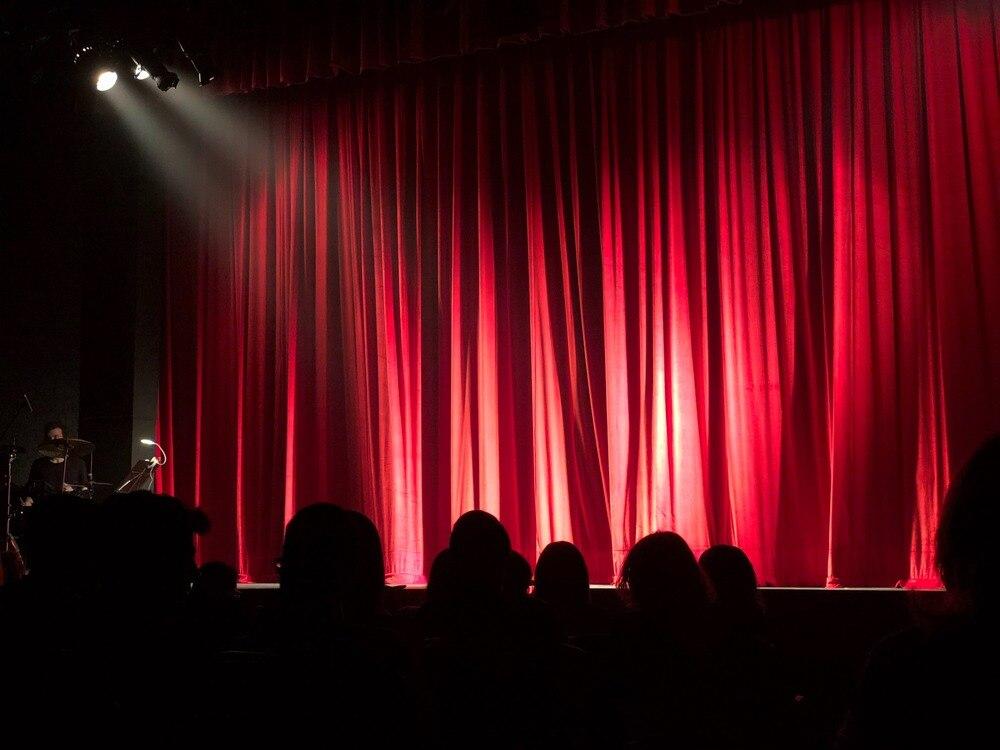With its rich tapestry of creativity and expression, theatre offers a unique academic adventure. As a seasoned IB writer, I’ve seen many students tackle the IB Theatre Studies extended essay, a crucial part of their educational path. This article will guide you, using my experience, on how to write a Theatre Studies extended essay that not only meets the IB criteria but also showcases your passion for this dynamic subject.
Understanding the Basics of a Theatre Studies Extended Essay
The Theatre Studies extended essay is an opportunity to immerse yourself deeply in a topic that captivates you. From my extensive experience in the IB field, this task is a unique blend of personal exploration and rigorous academic research. It’s a project where your voice and perspective are as crucial as the factual content you present.
The extended essay in IB Theatre Studies is a fundamental part of the IB curriculum, holding a significant weight in your overall score. It’s a chance to showcase your understanding of theatre as an art form and its various elements, from performance analysis to studying influential playwrights or directors. As I’ve advised many students, the choice of topic here is crucial. It should reflect your interests and offer enough scope for comprehensive research and analysis.
Throughout your essay, the IB curriculum encourages a balanced approach. You should integrate your insights with a strong foundation of theoretical knowledge. Your analysis should critically engage with various aspects of theatre – through a specific production, a particular methodology in theatre-making, or the evolution of theatrical styles and their impact on contemporary practices.
IB Theatre Studies Extended Essay: Choosing Your Topic Wisely
Choosing a topic for your IB Theatre Studies extended essay can significantly impact your writing process and the quality of your final piece. Here’s a list of tips and considerations to help you make an informed choice:
- Identify Your Interests. Focus on what fascinates you about theater. It could be a particular genre, a historical period, a famous playwright, or innovative stagecraft techniques.
- Consider Scope and Depth. Choose a topic that allows for thorough research within the 4,000-word limit.
- Research Potential. Look for a topic with plenty of research material. It includes academic papers, books, plays, and reviews.
- Relevance to the IB Curriculum. Your topic should allow you to demonstrate your understanding of the theatrical concepts and theories taught in the course.
- Originality and Uniqueness. Consider aspects of theatre that are less commonly researched or offer a new perspective on a familiar topic.
- Personal Connection. Find a topic to which you have a personal connection. It could be a play you’ve performed in or a theatrical style you’ve studied in depth.
By carefully considering these factors, you can choose a topic that meets the requirements of the IB Theatre Studies course and provides a fulfilling and intellectually stimulating writing experience.
Our blog also offers many potential topics for extended essays on IB Theatre Studies. From contemporary theatrical practices to cross-cultural theatrical influences, it is a great starting point for brainstorming.
Researching for Theatre Studies Extended Essay
Adequate research is the backbone of a successful essay. While in IB, I’ve seen students benefit from various sources, including academic journals, books, and live performances. Remember, thorough research informs your essay and demonstrates your commitment to the subject.
1. Academic Journals and Articles
Start with scholarly articles and journals. These are invaluable for their in-depth analysis, critical perspectives, and the latest research in theater studies. Journals such as Theatre Journal, Modern Drama, and Performance Research offer peer-reviewed articles that can provide a solid foundation for your arguments.
2. Books and Monographs
Look at books, especially those focusing on your essay’s specific area. They can offer comprehensive insights and historical context that might not be available in shorter articles. University libraries and online academic databases are excellent resources for finding relevant books.

3. Live Performances and Recordings
As a subject deeply rooted in performance, Theatre Studies benefits immensely from analyzing live or recorded performances. Watching plays that relate to your topic can offer a practical understanding and a unique perspective that enhances your essay.
4. Interviews with Theatre Professionals
Interviewing actors, directors, or theatre critics can provide firsthand insights that add depth and authenticity to your essay. These perspectives can offer a real-world dimension to your theoretical research.
5. Theatre Reviews and Critiques
Analyzing reviews and critiques from reputable sources can offer diverse perspectives on plays, playwrights, and performances. It can benefit essays focusing on the reception and interpretation of theatrical works.
6. Archives and Historical Resources
Archives can be a goldmine for essays dealing with historical aspects of theatre. They offer access to scripts, production notes, and other historical documents that can provide context and depth to your essay.
7. Workshops and Theatre Groups
Participating in or observing theatre workshops and groups can offer practical insights into theatre-making processes, which is precious for essays focused on production techniques or performance studies.
How Do You Structure an Extended Essay in Theatre Studies?
A well-structured essay helps communicate your ideas. Start with an outline that includes an introduction, body, and conclusion.
Regarding structure, the IB Theatre Studies extended essay demands meticulous attention. Typically, these essays are expected to be around 4,000 words. This word count is carefully set to allow a detailed exploration of your topic while also challenging you to express your thoughts concisely.
Introduction
Your introduction sets the stage for your essay. It’s where you present your thesis and outline your approach. Importantly, engage your readers from the get-go. A captivating opening can significantly affect how your essay is perceived.
Body
The body of your essay is where you unpack your arguments. Balance is critical here. Integrate theoretical concepts with practical examples, ensuring your essay is informative and engaging. Remember, each paragraph should flow seamlessly into the next, enhancing your paper’s readability.
Use evidence from your research to support your arguments. The unique aspect of Theatre Studies is its blend of theoretical understanding and practical application. Show how theoretical concepts apply to real-world theatre practices.
Conclusion
In the conclusion, briefly summarize the main arguments of your essay, reinforcing how they support your thesis. This section is not just a restatement of the discussion; it’s an opportunity to leave a lasting impression. Consider addressing the following:
- Synthesis of Key Points. Briefly recap the core arguments or insights of your essay.
- Relevance and Implications. Discuss the broader implications of your findings. Why is your research necessary in the field of Theatre Studies?
- Future Directions. Suggest areas for further research or questions that have emerged from your work.
As an IB student, reflecting on what you have learned or how your perspective has evolved can be a powerful addition to your conclusion.
Enhancing Your IB Extended Essay with Theatre Elements
Integrating theatre elements into your IB extended essay is not just about meeting the criteria of the Theatre Studies course; it’s about enriching your work with the essence of what makes theatre an art form.
Using Theatre Terminology and Concepts
As someone deeply immersed in Theatre Studies, I cannot stress enough the importance of using specific terminology. It demonstrates your grasp of the subject and adds depth to your analysis. Don’t shy away from researching complex concepts; instead, use them to enrich your essay.
Using technical language correctly strengthens your arguments and makes them more persuasive. It shows that you’re not just repeating information but thinking about the topic more deeply. Specific terms help clarify your analysis. For example, when discussing a play, using terms like “blocking,” ” mise-en-scène,” or “denouement” can make your descriptions more precise and insightful.
Analyzing Performances and Scripts
Analyzing performances and scripts offers an opportunity to bring your essay to life. Discuss how these elements support your thesis, and don’t hesitate to provide personal insights. In my experience, essays that include personal analysis stand out.
Comparing different performances or scripts can offer deeper insights. For example, contrasting how two productions of the same play interpret a character or theme can reveal varied perspectives within the theatre.
Refining and Finalizing Your Theatre Studies Extended Essay
This stage is about polishing your work to ensure it communicates your ideas and meets the International Baccalaureate standards. As an experienced IB educator, I’ve guided numerous students through this phase, and here are some detailed tips and insights to help you through the process.

Need help with your IB extended essay?
From research and analysis to structuring and editing, our skilled mentors will be by your side, helping you craft an exceptional extended essay that not only meets the wordcount and stringent IB criteria but also reflects your passion for selected IB group.
Editing and Proofreading Tips
Editing is just as important as writing. Pay close attention to the clarity and flow of your essay. Check for coherence, grammar, and adherence to IB guidelines. Remember, a well-edited essay reflects the effort and dedication you’ve put into your work.
Meeting IB Criteria and Standards
It is essential to know the IB criteria. Your essay should adhere to these standards, which cover everything from depth of analysis to formal presentation. As someone who has gone through these criteria, I recommend you pay close attention to them throughout your writing process.
Conclusion: Presenting Your Theatre Studies Insight
In conclusion, your Theatre Studies extended essay is a path of academic and personal growth. Through this process, you’re complying with an educational requirement and showcasing your understanding and love for theatre. Remember, your unique insights and perspectives will make your essay stand out.
Finally, don’t hesitate to seek help and resources. Consult your teachers, use libraries, and discuss with peers. And if you need help with a Theatre Studies extended essay, don’t hesitate to contact our IB experts at Extended Essay Writers!
Luke MacQuoid
Luke MacQuoid has extensive experience teaching English as a foreign language in Japan, having worked with students of all ages for over 12 years. Currently, he is teaching at the tertiary level. Luke holds a BA from the University of Sussex and an MA in TESOL from Lancaster University, both located in England. As well to his work as an IB Examiner and Master Tutor, Luke also enjoys sharing his experiences and insights with others through writing articles for various websites, including extendedessaywriters.com blog
- What Is an Interdisciplinary TOK Essay?by Luke MacQuoid
- Impact of Digital Media on Knowledge Perception in TOKby Luke MacQuoid
- Complexities of Bias in Knowledge Productionby Luke MacQuoid
- The Role of Paradigms in Shaping Knowledge in TOKby Luke MacQuoid
- Rationality and Creativity in TOK Essay Writingby Luke MacQuoid
- The Impact of Personal Beliefs on Knowledge Interpretation in TOKby Luke MacQuoid





